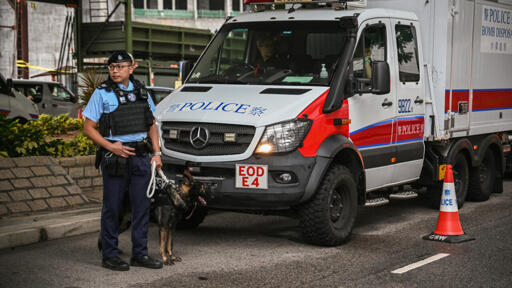International condemnation was swift, with the United States, Australia and rights groups slamming the sentencing as evidence of the erosion of political freedoms in the city since Beijing imposed the security law in 2020.
The group, which included figures from across Hong Kong’s once-diverse political spectrum, was charged with subversion after they held an informal poll in 2020 as part of a strategy to win a pro-democracy electoral majority.
Along with Tai, pro-democracy politicians Au Nok-hin, Andrew Chiu, Ben Chung and Australian citizen Gordon Ng were singled out as organisers and received sentences of up to seven years and three months. Australia’s government said it was “gravely concerned” by the sentencing, and said it would continue to advocate for Ng’s “best interests”. The other 40 defendants received terms beginning from four years and two months.
Western countries and international rights groups have condemned the trial as evidence of Hong Kong’s increased authoritarianism.
China and Hong Kong have pushed back against criticism, saying the security law restored order following the 2019 protests, and warning against “interference” from other countries.
Forty-seven people were initially charged after they were arrested in January 2021, making this case the largest by number of defendants. Thirty-one pleaded guilty, and 16 stood a 118-day trial last year, with 14 convicted and two acquitted in May. The aim of the election primary, which took place in July 2020, was to pick a cross-party shortlist of pro-democracy candidates to increase their electoral prospects. Three senior judges handpicked by the government to try security cases said the group would have caused a “constitutional crisis”.


